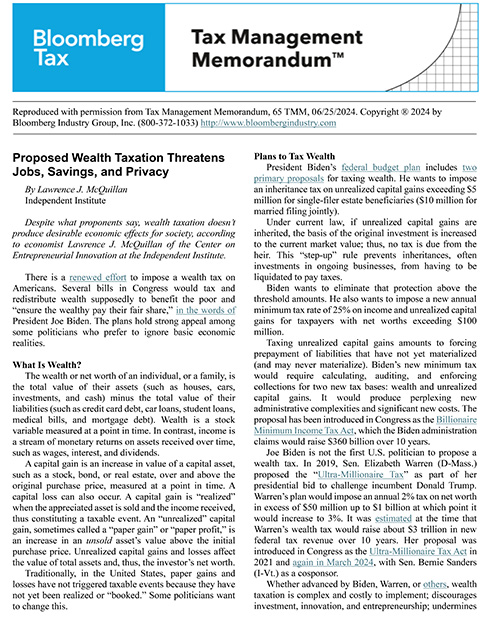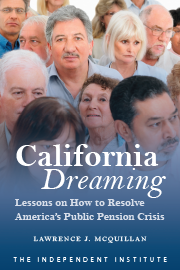This Research Article highlights key arguments against a proposed wealth tax. Besides being unconstitutional, wealth taxes discourage long-term investment, innovation, and entrepreneurship. These misguided proposals are rooted in falsehoods about the wealthy, who overwhelmingly are self-made, invest their wealth in productive businesses and philanthropic causes, and create more value for society than they acquire.
The “very rich” pay an average 31.5% income tax, not the 8% President Biden claims (based on flawed methodology), and the top 10% earners pay 79% of all federal income taxes. The top 1% earners pay 46% of all federal income taxes.
There is a renewed effort to impose a wealth tax on Americans. Several bills in Congress would tax and redistribute wealth supposedly to benefit the poor and “ensure the wealthy pay their fair share,” in the words of President Joe Biden. The plans hold strong appeal among some politicians who prefer to ignore basic economic realities.
What Is Wealth?
The wealth or net worth of an individual, or a family, is the total value of their assets (such as houses, cars, investments, and cash) minus the total value of their liabilities (such as credit card debt, car loans, student loans, medical bills, and mortgage debt). Wealth is a stock variable measured at a point in time. In contrast, income is a stream of monetary returns on assets received over time, such as wages, interest, and dividends.
(Download pdf to read remainder of the article.)










